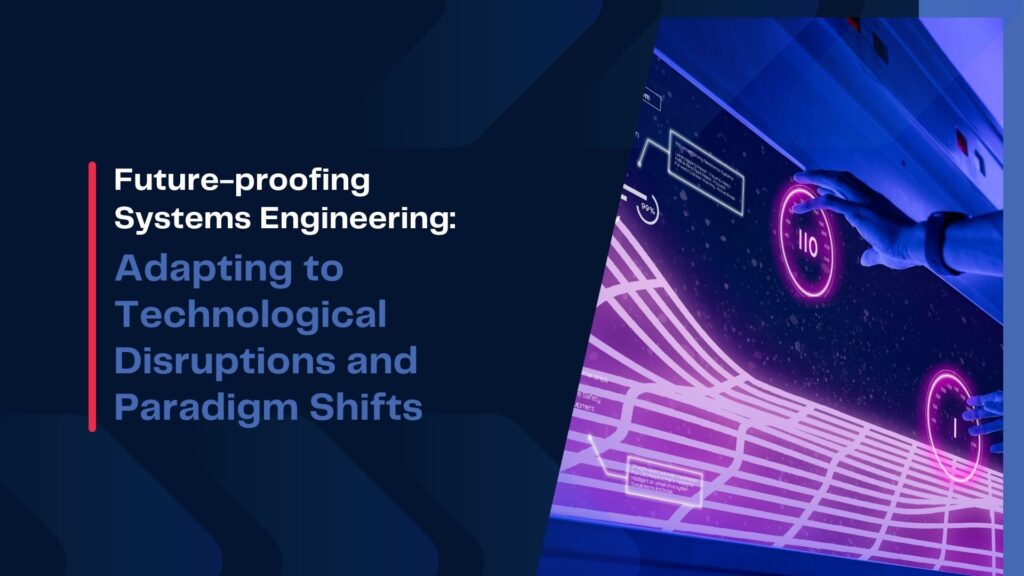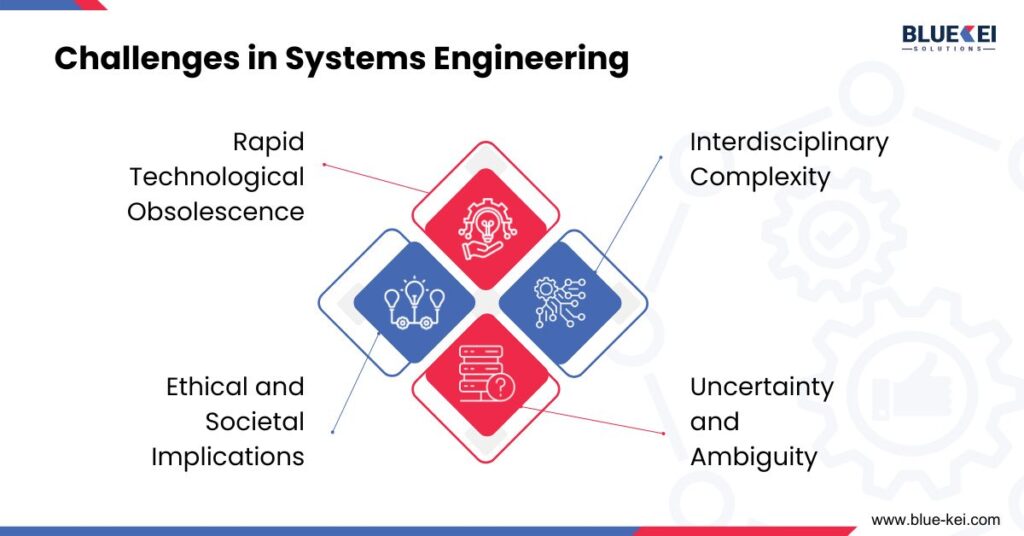Future-proofing Systems Engineering: Adapting to Technological Disruptions
and Paradigm Shifts
Systems engineering serves as the foundational framework for navigating the complexities of technological progress and steering the design, development, and implementation of intricate systems across diverse industries. Over time, it has proven indispensable in orchestrating the integration of subsystems and components, ensuring the seamless operation of complex systems. However, the relentless pace of technological evolution poses unprecedented challenges to traditional systems engineering practices. As emerging technologies such as artificial intelligence, blockchain, and quantum computing redefine the landscape, systems engineers must adapt swiftly to these disruptions.

The future of systems engineering hinges on its ability to embrace innovation, agile methodologies, and interdisciplinary collaboration. By incorporating predictive analytics, automation, and modular design principles, engineers can future-proof their approach and navigate the complexities of tomorrow’s technological landscape with confidence. This blog post aims to explore these strategies, offering insights into how systems engineering can evolve to meet the challenges and opportunities of an increasingly dynamic and interconnected world.
Technological disruptions, characterized by the emergence of groundbreaking innovations, fundamentally alter existing systems and practices. These disruptions can stem from various sources, including advances in artificial intelligence, quantum computing, biotechnology, and renewable energy. Paradigm shifts, on the other hand, entail fundamental changes in the underlying assumptions, principles, and methodologies governing systems engineering processes. Examples of paradigm shifts include the transition from traditional waterfall development models to agile and DevOps methodologies, as well as the increasing emphasis on sustainability and resilience in system design.
- As systems become more interconnected and complex, traditional engineering approaches may no longer suffice to address emerging challenges. Some of the key challenges in systems engineering include:
-
- Rapid Technological Obsolescence: Rapid technological advancements demand flexible, scalable designs to avoid obsolescence. Engineers can future-proof systems by using modular architectures and agile development, enabling easy upgrades and adaptation to new technologies. Robust planning is essential to stay ahead of obsolescence.
-
- Interdisciplinary Complexity: Modern systems blend technologies from engineering, computer science, and data science, which can complicate communication and goal alignment. Effective collaboration tools, cross-disciplinary training, and strong project management are key to overcoming these challenges and integrating diverse components successfully.
-
- Uncertainty and Ambiguity: To manage uncertainty in complex systems, engineers should use adaptive designs, scenario planning, risk analysis, and iterative development. Embracing agile methods and treating uncertainty as a design factor helps mitigate risks and enables faster adaptation to changes.
-
- Ethical and Societal Implications: Advancing technology brings ethical challenges such as data privacy and algorithmic bias. Engineers must use ethical frameworks, ensure compliance, engage stakeholders, and conduct regular reviews to design systems responsibly and address societal impacts.

To navigate these challenges and thrive in an era of technological disruption, systems engineers must embrace innovative approaches and adopt a forward-thinking mindset. The following strategies can help future-proof systems engineering practices:
Agile and Adaptive Methodologies: Embrace agile methodologies such as Scrum and Kanban to foster flexibility, collaboration, and rapid iteration in system development processes. Adopting an adaptive mindset allows teams to respond effectively to changing requirements and emerging technologies.
Conclusion
Future-proofing systems engineering necessitates a proactive and adaptive stance, wherein engineers embrace innovative methodologies, foster interdisciplinary collaboration, prioritize ethical considerations, and embrace emerging technologies. By adopting agile development practices and modular architectures, engineers can design systems that are flexible and scalable, enabling easier adaptation to rapid technological changes. Interdisciplinary collaboration ensures that diverse perspectives are incorporated into system design, enhancing its robustness and resilience. Moreover, prioritizing ethical considerations ensures that systems are developed and deployed responsibly, addressing societal concerns and mitigating potential risks. Embracing emerging technologies such as artificial intelligence, blockchain, and the Internet of Things enables engineers to stay ahead of the curve and leverage the latest advancements to enhance system performance and functionality. Through these concerted efforts, systems engineering can continue to drive technological innovation and shape the future of our increasingly interconnected world, navigating disruptions and paradigm shifts with confidence.
We saw how businesses benefit from the systems engineering approach. There is much to explore and achieve. You may also want to reap the benefits of this approach. Let BlueKei help your organization leverage systems engineering to its full potential. Contact us to schedule a call to get things going!
If you are interested in understanding how to adopt systems engineering and model based systems engineering practices within your organization, reach out to BlueKei Solutions team at info@Blue-Kei.com. We specialize in systems engineering consulting, project executions, process adoptions such as compliance to ISO15288, ARP 4754A, ISO 42020, digital transformations. We can also conduct capability development workshops which are experiential and tailored to your needs. With systems engineering adoption you can address the complexity, manage evolving risks and bring transformation in communication within your organization through digitalization and create the digital thread.

